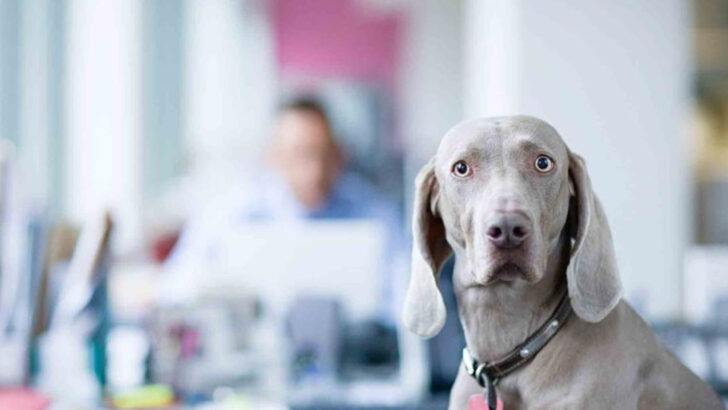Big dogs bring big love—and sometimes big problems.
They snore louder, drool harder, and take up half the couch… but we wouldn’t have it any other way.
From gentle giants to bold protectors, America’s largest dog breeds steal hearts on sight—and then steal your bed.
But with all that size comes a few strings attached.
Behind those soulful eyes and wiggly tails, many of these breeds face some serious health challenges.
Joint issues, heart troubles, bloat—some risks grow right along with them.
Still, millions of people across the country wouldn’t trade their large dogs for anything.
Whether it’s a Saint Bernard, a Great Dane, or a massive floof you can’t identify—these dogs are loyal to the core.
Let’s meet the heavyweights of the dog world and get real about the health concerns every big-dog lover should know.
Labrador Retriever
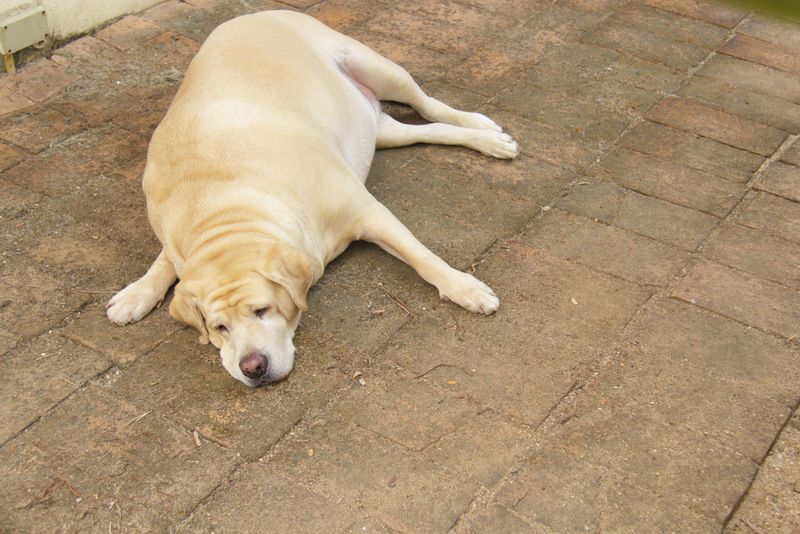
Labrador Retrievers are the quintessential family dog, known for their friendly demeanor and love for play. With an eager-to-please personality, they often excel as service dogs. However, Labrador Retrievers are prone to obesity, which can lead to joint issues and diabetes. Regular exercise and a balanced diet are crucial for maintaining their health. Additionally, they may suffer from hip and elbow dysplasia, so keeping an eye on their weight and providing joint supplements can be beneficial. Their coat requires regular grooming to keep shedding under control.
German Shepherd
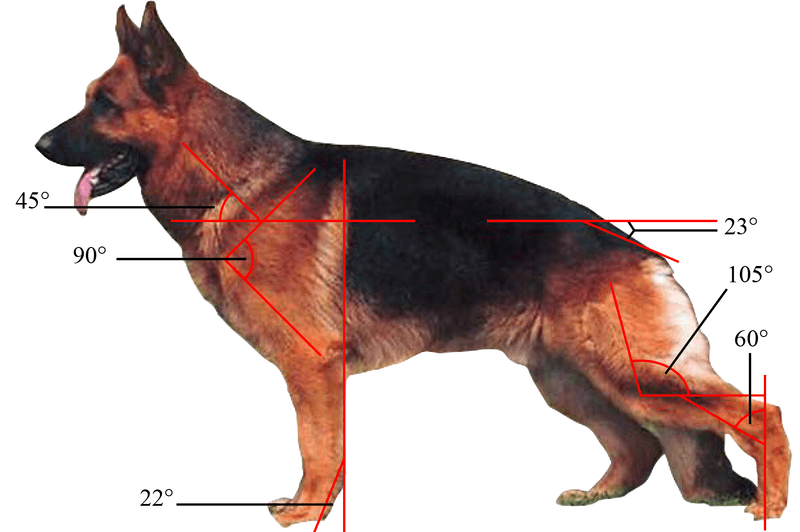
German Shepherds are renowned for their intelligence and protective nature, often serving in police and military roles. Their courageous spirit makes them excellent working dogs. However, they are susceptible to hip and elbow dysplasia, which can lead to mobility issues. Regular vet check-ups and maintaining a healthy weight can help mitigate these risks. They also require mental stimulation to prevent boredom-related behaviors. Regular grooming is necessary to manage their double coat, especially during shedding season.
Golden Retriever
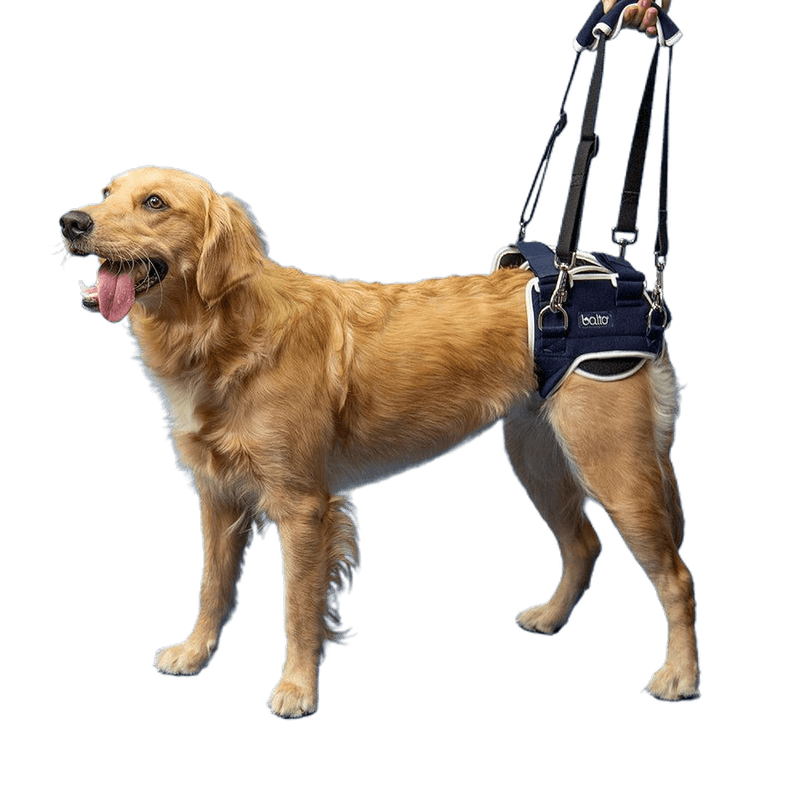
Golden Retrievers, with their sunny disposition, are beloved family pets. Known for their intelligence and playfulness, they are great companions for children. However, they are prone to hip dysplasia and certain heart conditions. Regular vet visits and maintaining an active lifestyle can help manage these health concerns. Their thick, water-repellent coat requires frequent grooming to prevent matting and reduce shedding. Golden Retrievers also thrive on social interaction, so providing them with ample attention and training is key to their happiness.
Rottweiler

Rottweilers are known for their strength and protective nature, making them excellent guard dogs. Their loyalty to family is unparalleled. However, Rottweilers can be prone to hip and elbow dysplasia, as well as heart conditions like aortic stenosis. Regular exercise and weight management are essential to prevent these health issues. They require an experienced owner who can provide firm training and socialization. Despite their tough exterior, they are affectionate with their families and enjoy mental and physical challenges.
Boxer
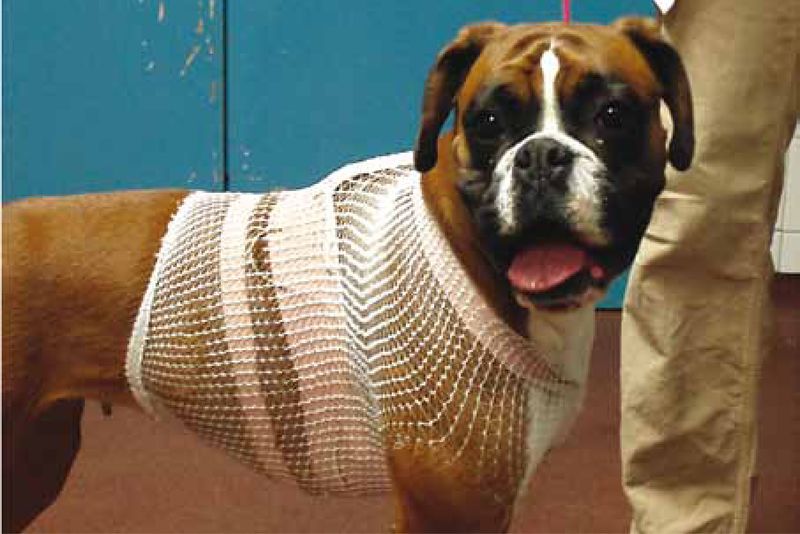
Boxers are energetic and playful companions, known for their boundless enthusiasm. Their expressive faces and playful antics make them endearing to families. However, Boxers are prone to heart conditions such as cardiomyopathy and aortic stenosis. Regular veterinary check-ups and moderated exercise are important to keep them healthy. They also have a short coat that requires minimal grooming, but regular cleaning of their facial folds is necessary to prevent infections. Boxers thrive on human interaction and need plenty of exercise to channel their energy positively.
Siberian Husky
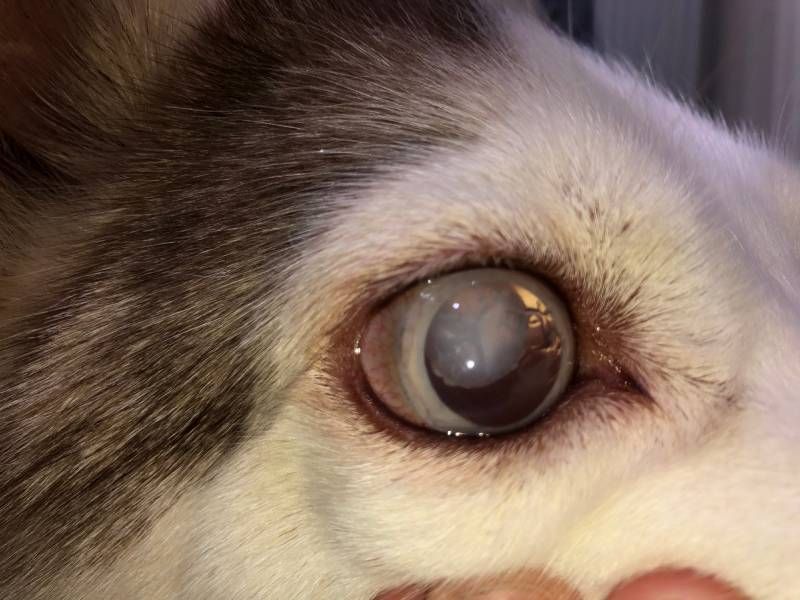
Siberian Huskies are captivating with their striking blue eyes and thick coat. Known for their endurance, they were bred as sled dogs in Siberia. However, they can suffer from hip dysplasia and eye disorders such as cataracts. Regular eye exams and maintaining an active lifestyle are crucial for their health. Huskies are escape artists and require a secure yard. Their coat needs regular brushing to control shedding. Their independent nature requires patient training, but their loyalty makes it worthwhile.
Great Dane
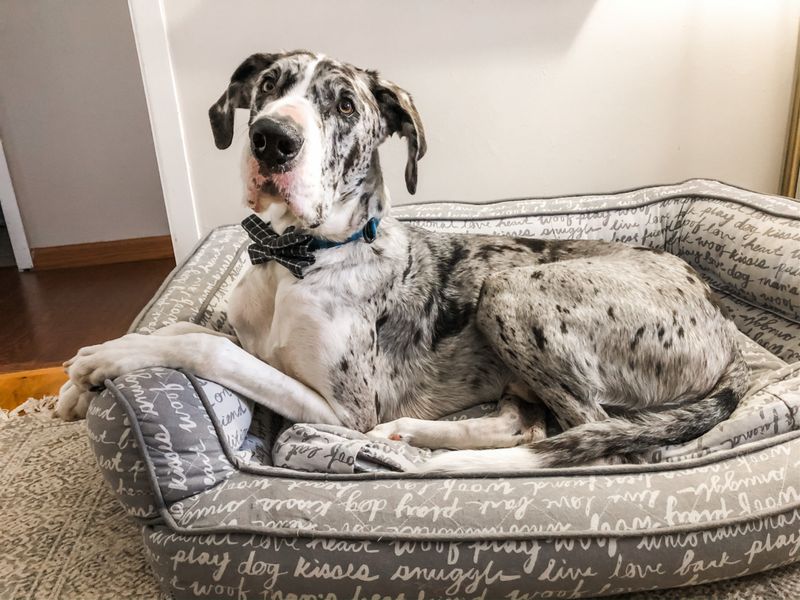
Great Danes are gentle giants known for their friendly demeanor and towering presence. Their calm and patient nature makes them excellent family companions. However, they are prone to bloat, a life-threatening condition that requires immediate medical attention. Regular vet check-ups and feeding smaller meals can help reduce this risk. Great Danes may also experience joint issues due to their size. Providing supportive bedding can help keep them comfortable. Despite their size, they are often referred to as “lap dogs” due to their affectionate nature.
Bernese Mountain Dog
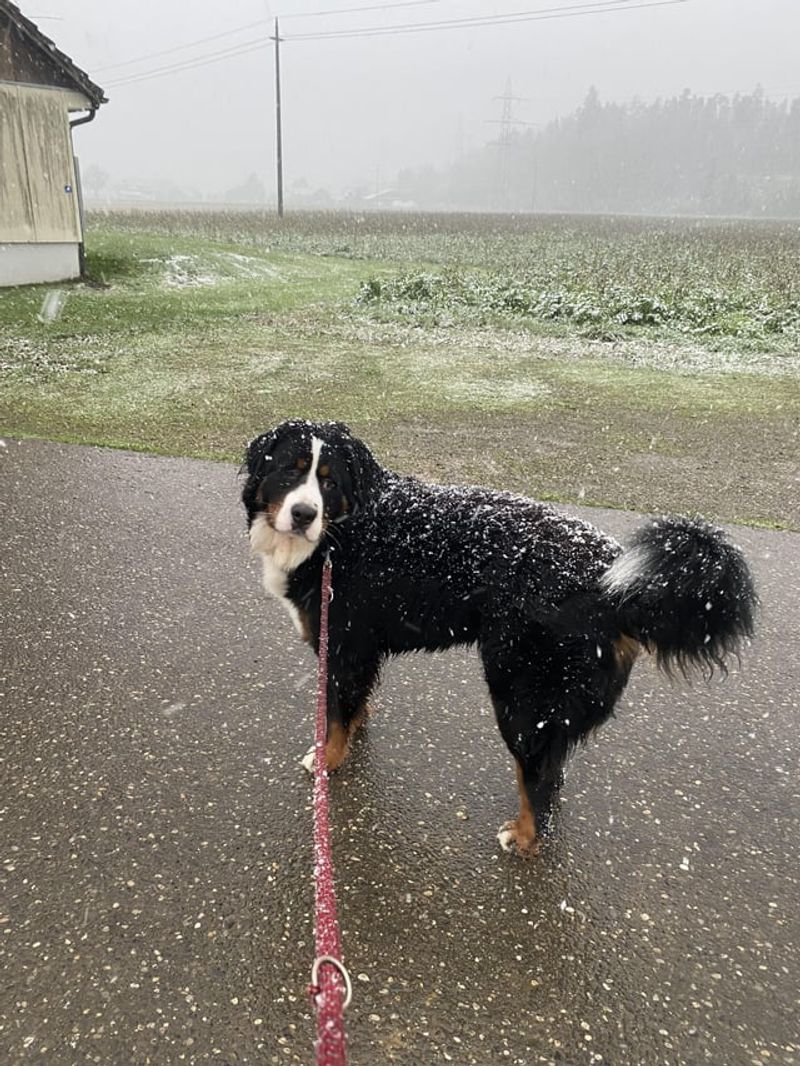
Bernese Mountain Dogs are known for their striking tricolor coats and gentle disposition. Bred to work on Swiss farms, they are incredibly strong and resilient. However, they are predisposed to hip and elbow dysplasia and certain cancers. Early detection and proper veterinary care can aid in managing these health issues. They thrive in cold weather and enjoy outdoor activities. Their thick coat requires regular grooming to prevent matting. Bernese Mountain Dogs form strong bonds with their families and are known for their affectionate nature.
Mastiff
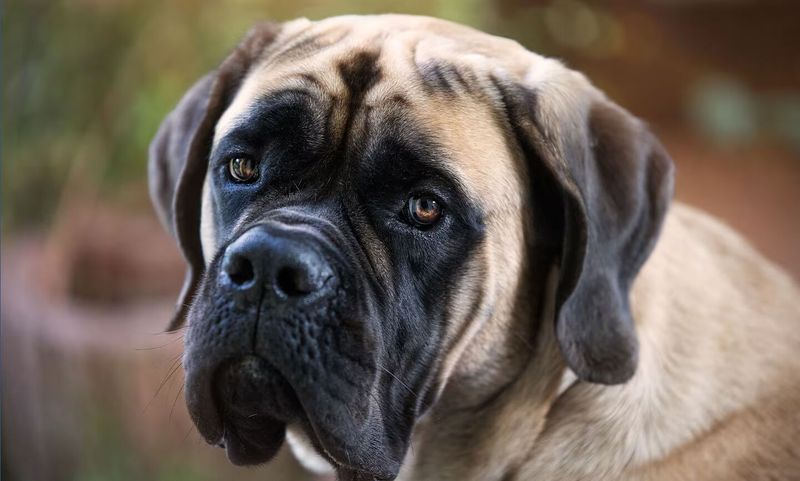
Mastiffs are gentle giants with a calm demeanor, known for their loyalty and protective instincts. Their imposing size makes them excellent guard dogs, yet they are gentle with family. However, Mastiffs are prone to joint problems and heart issues. Providing a balanced diet and regular exercise can help mitigate these risks. Their short coat requires minimal grooming, but regular cleaning of facial folds is necessary. Mastiffs prefer a laid-back lifestyle and enjoy lounging around the house. Despite their size, they are affectionate and gentle with children.
Doberman Pinscher
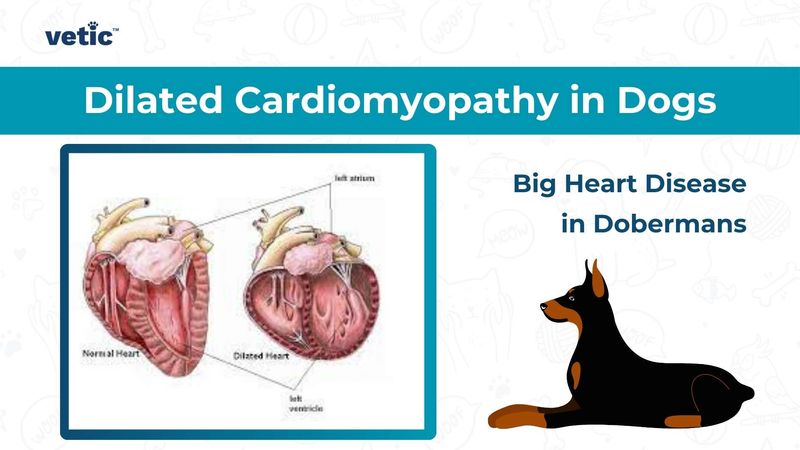
Doberman Pinschers are known for their sleek appearance and intelligence. They make excellent guard dogs due to their alert nature. However, Dobermans are prone to heart conditions such as dilated cardiomyopathy and von Willebrand’s disease. Regular vet check-ups and a heart-healthy diet are important. Their short coat is easy to maintain but requires regular brushing. Dobermans thrive on physical activity and need regular exercise to stay happy. They form strong bonds with their families and excel in obedience training, making them reliable companions.
Newfoundland
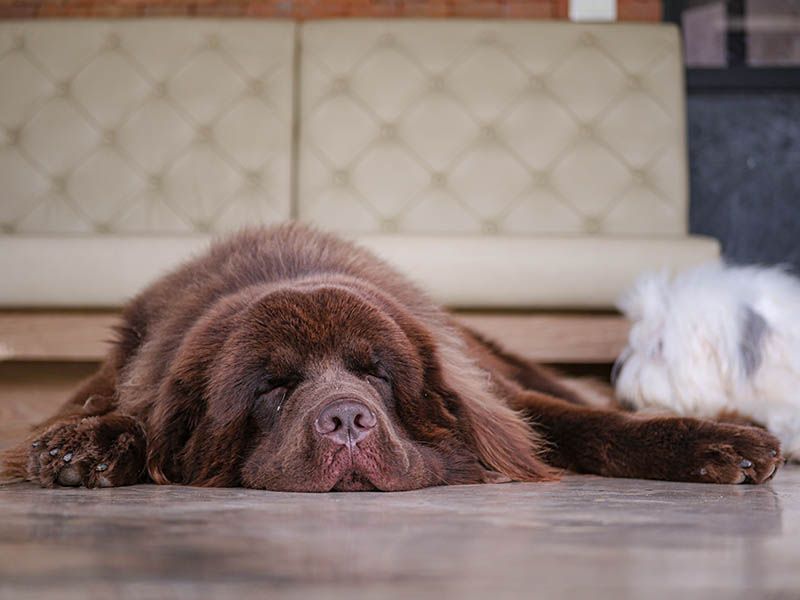
Newfoundlands are gentle giants with a heart as big as their paws. Known for their strong swimming ability, they excel in water rescue roles. However, they can suffer from hip dysplasia and heart conditions. Regular vet visits and maintaining a healthy weight are crucial. Their thick double coat requires regular brushing to prevent matting. Newfoundlands are known for their sweet nature and are excellent with children, often referred to as “nanny dogs.” They enjoy outdoor activities, particularly swimming, and thrive in colder climates.
Alaskan Malamute
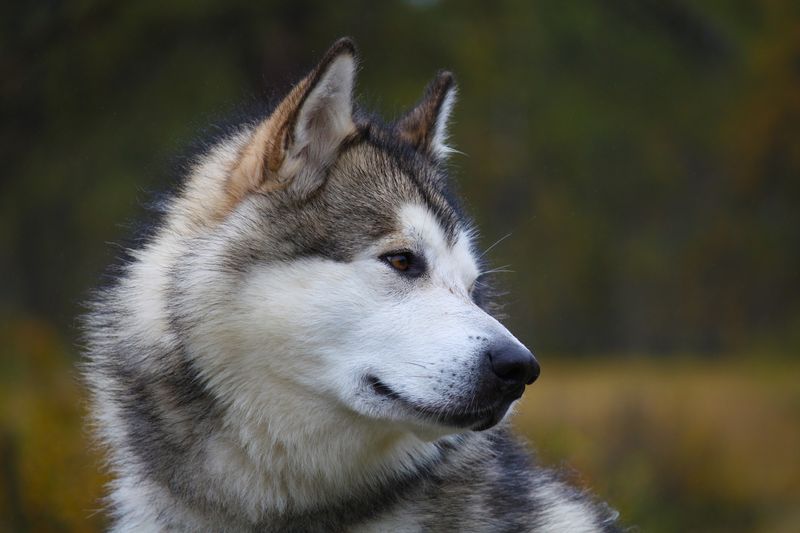
Alaskan Malamutes embody strength and endurance, bred to pull heavy sleds in harsh Arctic conditions. Their thick double coat and bushy tails are adapted for cold weather. However, Malamutes are prone to hip dysplasia and inherited polyneuropathy. Regular vet check-ups and maintaining an active lifestyle are essential. Their coat requires frequent grooming, especially during shedding season. Alaskan Malamutes are independent and require consistent training. Despite their strength, they are friendly and playful, making them great companions for active families.
Chesapeake Bay Retriever
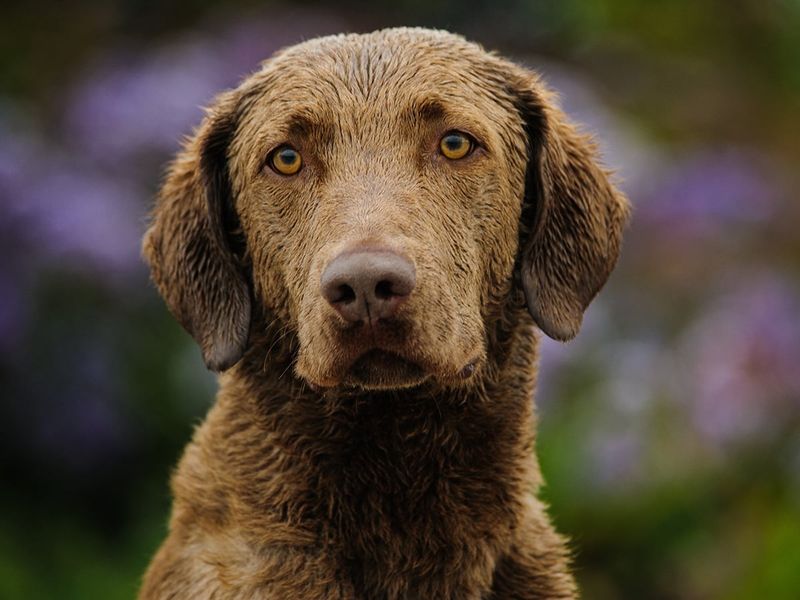
Chesapeake Bay Retrievers are strong and intelligent, bred for retrieving waterfowl in challenging conditions. Their waterproof coat allows them to work in cold water. However, they can suffer from hip dysplasia and eye conditions. Regular vet care and maintaining a healthy weight are important. Their coat requires occasional grooming to keep it in good condition. Chesapeake Bay Retrievers are known for their determination and are excellent at problem-solving. They thrive in active households where they can participate in outdoor activities and hunting exercises.
Saint Bernard
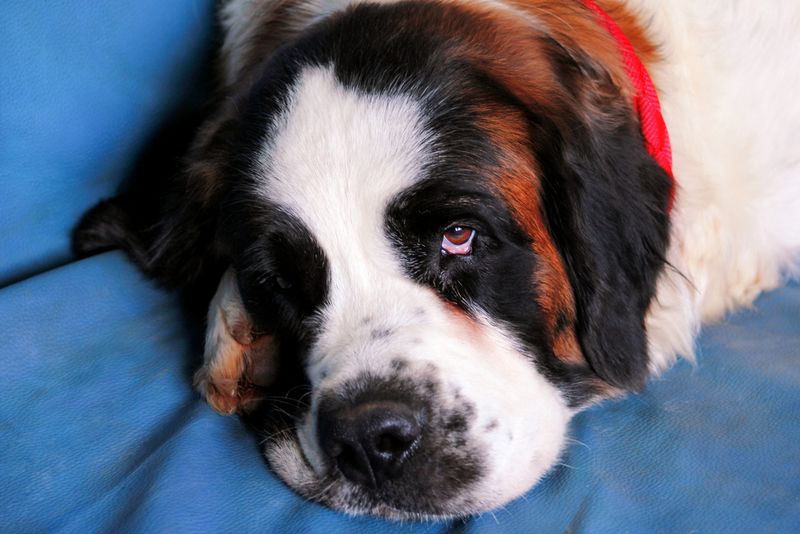
Saint Bernards are renowned for their gentle and loving nature, famously depicted as rescue dogs in the Alps. However, they are prone to hip and elbow dysplasia, heart issues, and bloat. Regular vet visits and weight management are crucial. Their thick coat requires consistent grooming to prevent matting and reduce shedding. Saint Bernards are excellent family pets, known for their patience with children. Despite their large size, they are gentle and enjoy indoor living. They thrive in colder climates and love playing in the snow.
Weimaraner
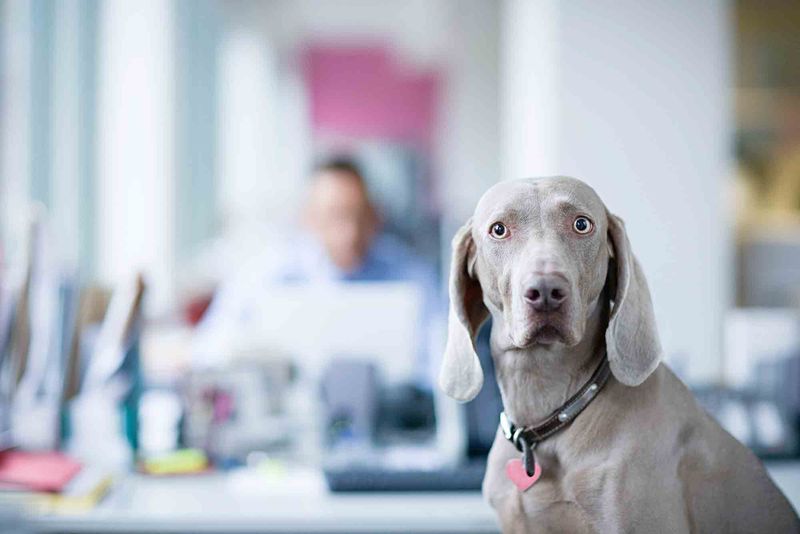
Weimaraners are known for their sleek, silver-grey coat and striking eyes. Bred for hunting, they are agile and energetic. However, they can be prone to hip dysplasia and bloat. Regular vet check-ups and feeding smaller meals can help prevent these issues. Their short coat is easy to care for but requires regular brushing. Weimaraners are intelligent and require mental stimulation to prevent boredom. They thrive in active households where they can participate in outdoor activities and enjoy running. Their loyalty makes them cherished companions.
Collie
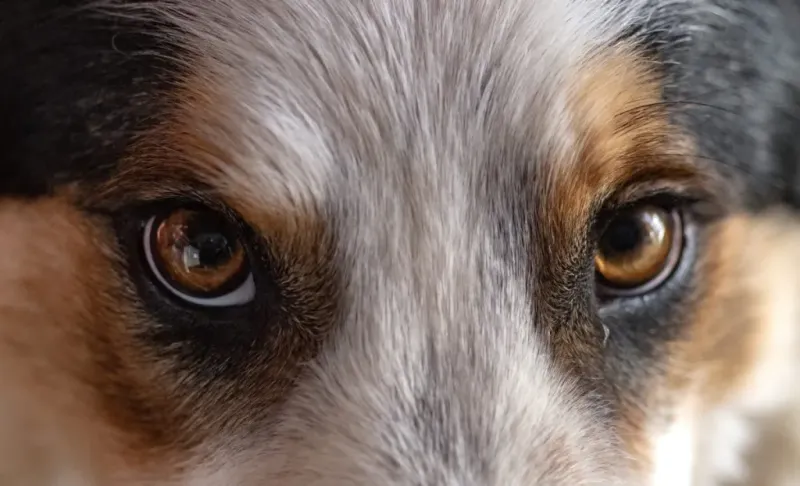
Collies are intelligent and elegant, known for their herding abilities and loyalty. Made famous by Lassie, they are beloved family pets. However, they are prone to eye disorders such as Collie Eye Anomaly and hip dysplasia. Regular eye exams and maintaining a healthy lifestyle are important. Their double coat requires regular grooming to prevent matting. Collies thrive on mental and physical challenges, enjoying activities like herding and agility training. They form strong bonds with their families and are gentle with children, making them wonderful companions.
Rhodesian Ridgeback
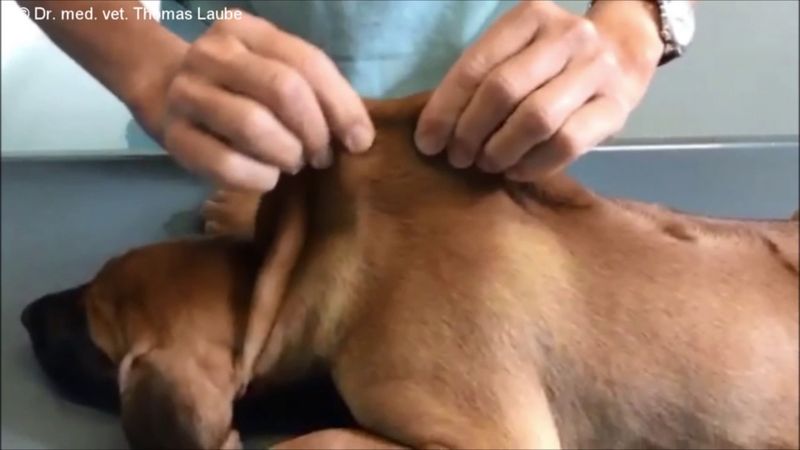
Rhodesian Ridgebacks are known for their distinctive ridge of hair along their back. Bred in Africa for hunting lions, they are courageous and strong. However, they can suffer from hip dysplasia and dermoid sinus. Regular vet care and maintaining a healthy weight are important. Their short coat requires minimal grooming. Ridgebacks are independent and require consistent training. They thrive in active households where they can participate in outdoor activities. Despite their hunting background, they are loyal family companions and protective of their loved ones.
Irish Setter
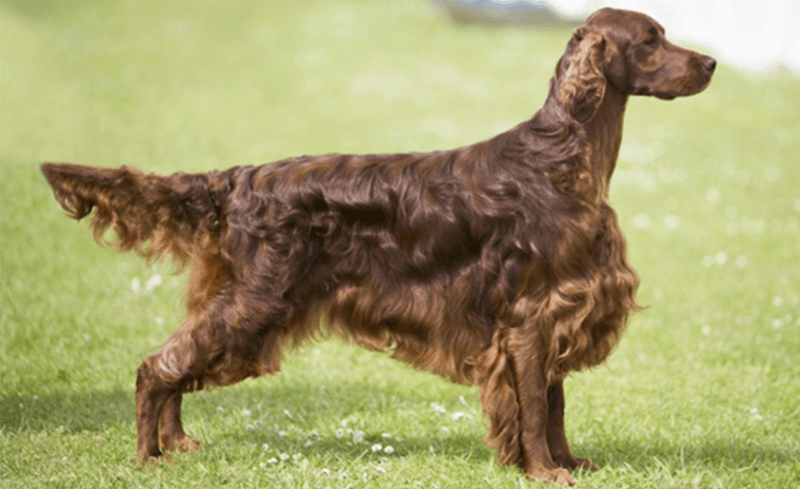
Irish Setters are known for their stunning red coat and exuberant personality. Bred for hunting, they are energetic and love outdoor activities. However, they can be prone to hip dysplasia and bloat. Regular vet visits and feeding smaller meals can help prevent these issues. Their long, silky coat requires regular grooming to prevent tangles. Irish Setters thrive in active households where they can participate in hunting or agility training. Their playful nature and friendly demeanor make them beloved family pets. They enjoy socializing and require regular companionship.
Bloodhound

Bloodhounds are renowned for their incredible sense of smell, used in search and rescue operations. However, they can suffer from hip dysplasia and ear infections. Regular vet check-ups and cleaning of their long ears are important. Their loose skin and droopy eyes require attention to prevent infections. Bloodhounds are gentle and affectionate, known for their persistence and determination. They require mental stimulation and enjoy tracking exercises. Despite their large size, they are gentle and good with children. Bloodhounds make unique and charming companions with their distinctive appearance.
Beauceron
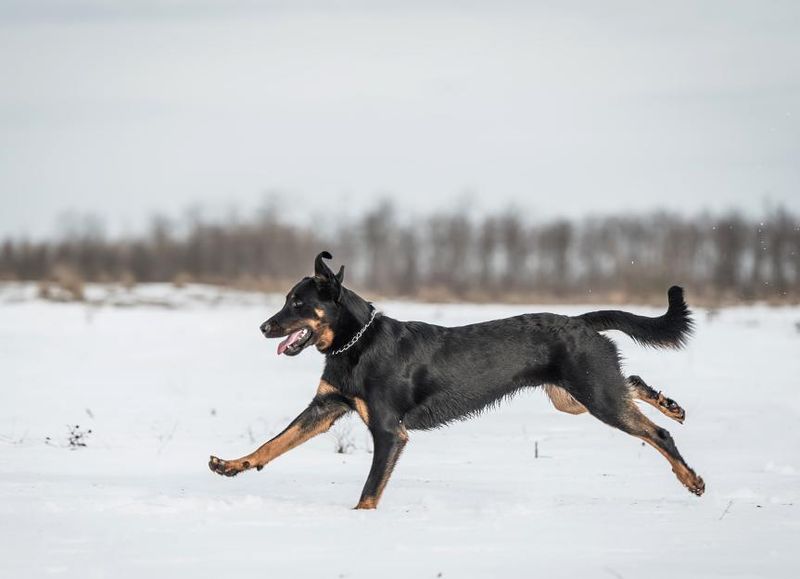
Renowned for its intelligence and herding skills, the Beauceron is a breed that commands attention with its striking appearance and alert demeanor. This large and versatile herding dog hails from France and has a history as rich as its coat. With a wag of its tail, the Beauceron reveals its courageous nature, ever ready to protect its family.
However, like many large breeds, the Beauceron can be prone to hip dysplasia, a condition that could affect its mobility over time. Regular vet visits and maintaining a healthy weight can help minimize these risks, ensuring a full, vibrant life.

